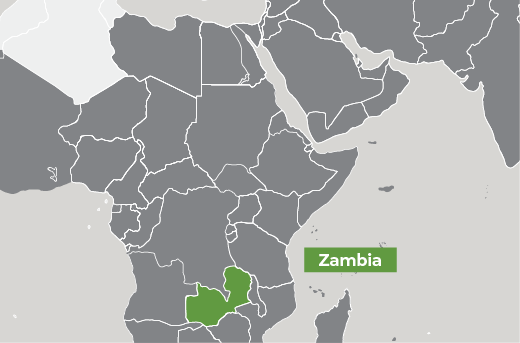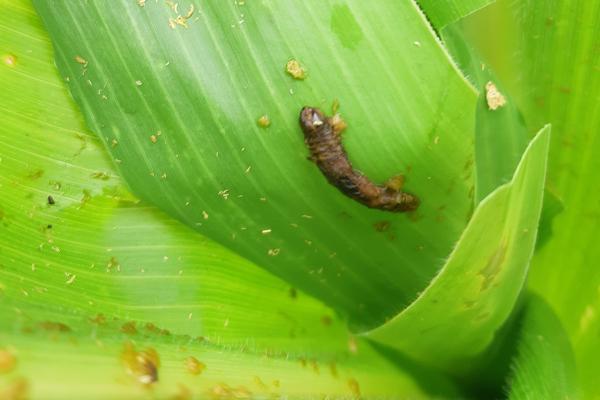Overview
This project aims to increase food security and safety for smallholder farmers in Zambia, by providing nature based low risk solutions to manage fall armyworm in maize.
In recent years, fall armyworm (FAW), Spodoptera frugiperda, has become one of the most damaging invasive species in Zambia. The pest particularly causes enormous damage to maize, the key staple food for 300 million African farmers, posing a significant threat to food security and livelihoods. At least 98% of small-holder Zambian farmers are affected by fall armyworm every cropping cycle, leading to significant yield losses (Rwomushana et al., 2018). This approximates to an economic loss in the country estimated at about US$ 159 million. A comprehensive review jointly funded by GRDC and ACIAR (Kalyebi et al., 2023) showed yield losses in unmanaged maize crops to be between 10 and 35%. In their extensive review, Overton et al. (2021) identified 71 peer-reviewed references that reported yield losses from FAW infestation, with a total of 888 separate yield loss entries which are in line with the reported losses in Zambia. Eschen et al. (2021) also estimated that FAW causes annual yield losses of USD 9.4 billion in Africa alone.
Management of FAW is largely carried out through the use of conventional chemical pesticides using a field-by-field approach.
This research aims to propose and promote to farmers an effective and environmentally benign pest management method based on exploiting locally amplified biological control agents (a baculovirus and an entomopathogenic fungus). Co-designing the proposed innovations with farmers and using experimental fields as biological control learning sites will foster interest for the innovations and greater adoption for lower risk management options for FAW.
It is envisaged that if successfully developed in Zambia, these methodologies could be adopted in other regions with similar agroecological systems affected by FAW invasions, significantly magnifying the impacts of this research.
Expected outcomes
- Optimising field trials of Zambian isolates of Metarhizium rileyi and demonstrating baculovirus compatibility for control of FAW.
- Process of village-based amplification of biological control agents, and corresponding business models for sustainable dissemination will be evaluated.
- Maize-growing communities participating in the project will have a better capacity to tackle FAW, as a result of their involvement in the research work. The research will be undertaken at pilot scale, providing demonstration and evidence to inform future development-scale projects.
- Increasing women and youth involvement and knowledge in agriculture related to FAW and biocontrol.




